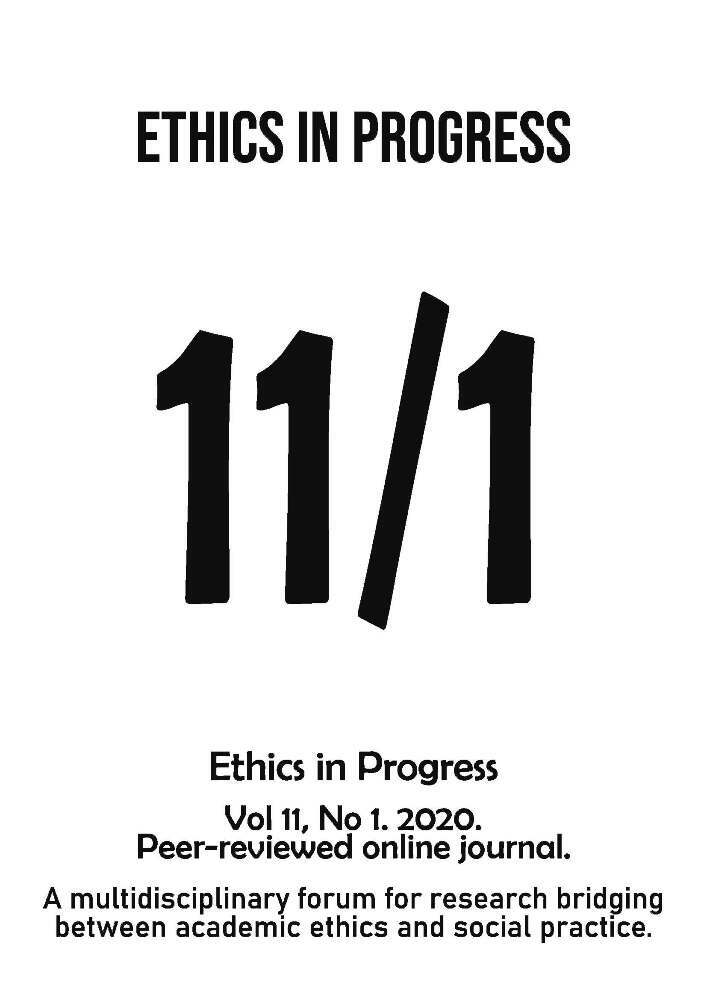Abstract
May you live in interesting times, the famous maxim quotes. Undoubtedly, at least in the historical context, periods of political, social, scientific, or economic riots – or at least commotion, ferment, crisis – have certainly earned such a title. So have the epochs which were subject to radical transformations distorting traditional relationships and institutions, existing patterns and rules. The abovementioned “interestingness” is thus a function of a radical change, challenge and variability, somewhat a derivative of erosion, and of all that we associate it with the notion of revolution or turn, be it political, social, economic, environmental, or scientific. The paper’s core aim is to examine the nowadays constantly revised, questioned, thus, shaking demarcation between science and pseudoscience in the light of new trends such as misinformation, denialism, internetisation and memoisation of scientific discourses.
References
Ajdukiewicz K. 1957. „O wolności nauki,” Nauka Polska 3.
Amsterdamski S. 1994. Tertium non datur? Szkice i polemiki. Warszawa: Wydawnictwo PWN.
Babik W. 2014. Ekologia informacji. Kraków: Wydawnictwo Uniwersytetu Jagiellońskiego.
Ball P. 2016. Science and Ideology: The Case of Physics in Nazi Germany, https://ojs.uv.es/index.php/Metode/article/view/7665/9758 (last accessed August 22, 2019).
Boseley S. 2018. “Measles Cases at Highest for 20 Years in Europe, As Anti-vaccine Movement Grows,” The Guardian, December 21, 2018, https://www.theguardian.com/world/2018/dec/21/measles-cases-at-highest-for-20-years-in-europe-as-anti-vaccine-movement-grows (last accessed on August 24, 2020).
Broniatowski D., Jamison A., Qui S., Alkulaib L., Chen T., Benton A., Quinn S., & Dredze M. 2018. “Weaponized Health Communication: Twitter Bots and Russian Trolls Amplify the Vaccine Debate,” American Journal of Public Health 108(10):1378–1384. DOI: 10.2105/AJPH.2018.304567 (last accessed on August 24, 2020).
Bunge M. 1984. “What Is Pseudoscience?,” The Skeptical Inquirer 9(1):36–46.
Chwedeńczuk B. 2010. „Czy istnieją pytania filozoficzne?” http://www.racjonalista.pl/pdf.php/s,7339,p. 3 (last accessed on August 24, 2020).
Clement J. 2020. “Worldwide Digital Population as of July 2020”, Statista, https://www.statista.com/statistics/617136/digital-population-worldwide/ (last accessed on August 24, 2020].
Davidson J. 2015. “Here’s How Many Internet Users There Are”, Time Magazine, http://time.com/money/3896219/internet-users-worldwide/ (last accessed on May 18, 2017).
Diethelm P. & McKee M. 2009. “Denialism: What Is It and How Should Scientists Respond?“ European Journal of Public Health” 19(1):2–4.
Feyerabend P. 1993. Against Method. London – New York: Verso.
Fazlagić J. A. 2010. „Zjawisko ‘nadmiaru informacji’ a współczesna edukacja,” http://www.e-mentor.edu.pl/artykul/index/numer/36/id/773 (last accessed on May 18, 2020).
Flood A. 2016. ‘Post-truth’ Named Word of the Year by Oxford Dictionaries,” The Guardian, https://www.theguardian.com/books/2016/nov/15/post-truth-named-word-of-the-year-by-oxford-dictionaries (last accessed 18.05. 2020).
Gallotti R., Valle F., Castaldo N., Sacco P., & DeDomenico M. 2020. “Assessing the Risks of «Infodemics» in Response to COVID-19 Epidemics,” medRxiv (preprint). URL: https://www.medrxiv.org/content/10.1101/2020.04.08.20057968v1.full.pdf (last accessed on August 24, 2020).
Golka M. 2008. Bariery w komunikowaniu i społeczeństwo (dez)informacyjne. Warszawa: PWN.
Goodstein D. 2002. “Conduct and Misconduct in Science,” in P. R. Gross, N. Levitt, & M. W. Lewis (Eds.), The Flight From Science and Reason (pp. 775–831). New York: The New York Academy of Sciences, http://www.its.caltech.edu/~dg/conduct_art.html (last accessed on April 17, 2020).
Gordin M. D. 2012. The Pseudoscience Wars: Immanuel Velikovsky and the Birth of the Modern Fringe (pp. 79–105). Chicago: University Of Chicago Press.
Gordis L. 2014. Epidemiology. New York: Elsevier-Sounders.
Hoffman B. L., Felter E. M., Chu K. H., Shensa A., Hermann Ch., Wolynn T., Williams D., & Primack B. A. 2019. “It’s Not All about Autism: The Emerging Landscape of Anti-vaccination Sentiment on Facebook,” Vaccine 37(16):2216–2223.
Joravsky D. 1970. The Lysenko Affair. Chicago: University of Chicago Press.
Kata A. 2010. “A Postmodern Pandora’s Box: Anti-vaccination Misinformation on the Internet,” Vaccine 28:1709–1716.
Kata A. 2012. “Anti-vaccine Activists, Web 2.0, and the Postmodern Paradigm – An Overview of Tactics and Tropes Used Online by the Anti-vaccination Movement,” Vaccine 30:3778–3789.
Knobel M. 2020. “The Role of Communication in a Post-truth World,” University World News from 08.02.2020, https://www.universityworldnews.com/post.php?story=20200203141227255 (last accessed on August 24, 2020).
Lakatos I. 1978. “The Methodology of Scientific Research Programmes,” in J. Worrall & G. Currie (Eds.), Philosophical Papers, vol. 1, Cambridge University Press.
Roden L. 2017. “Swedish Kids to Learn Computer Coding and How To Spot Fake News in Primary School,” https://www.thelocal.se/20170313/swedish-kids-to-learn-computer-coding-and-how-to-spot-fake-news-in-primary-school (last accessed on August 24, 2020).
Smolin L. 2006. The Trouble with Physics: The Rise of String Theory, the Fall of a Science, and What Comes Next. Boston: Houghton Mifflin.
Marchewka A. K., Majewska A., & Młynarczyk G. 2015. „Działalność ruchu antyszczepionkowego, rola środków masowego komunikowania oraz wpływ poglądów religijnych na postawę wobec szczepień ochronnych,” Postępy Mikrobiologii 52(2):95–97.
Merton R. K. 1973. The Sociology of Science: Theoretical and Empirical Investigations. Chicago: University of Chicago Press.
Nowak A. W., Abriszewski K., & Wróblewski M. 2016. Czyje lęki? Czyja nauka? Struktury wiedzy wobec kontrowersji naukowo-społecznych. Poznań: Wydawnictwo Naukowe UAM.
Pigliucci M. & Boudry M. (Eds.) 2013. Philosophy of Pseudoscience: Reconsidering the Demarcation Problem. Chicago: University of Chicago Press.
Piotrowska E. 2012. Nauka a ideologia. Matematycy i matematyka w III Rzeszy. Poznań: UAM Poznań Editions.
Popper K. R. 2002. The Logic of Scientific Discovery. London – New York: Routledge.
Robinson M. 2014. Losy elity akademickiej. Rosyjska slawistyka od 1917 roku do początku lat 30, trans. M. Skarżyński. Warszawa: Wydawnictwo Akademickie Sedno.
Smolin L. 2006. The Trouble with Physics: The Rise of String Theory, the Fall of a Science, and What Comes Next. Boston: Houghton Mifflin.
Sproule J. M. 1997. Propaganda and Democracy: The American Experience of Media and Mass Persuasion. Cambridge: Cambridge University Press.
Such J. 2004. Multiformity of Science. Amsterdam – New York: Rodopi.
Such J. 2009. „Racjonalność przyrody a racjonalność życia społecznego,” in Z. Drozdowicz, Z. Melosik, & S. Sztajer (Eds.), O racjonalności w nauce i życiu społecznym. Poznań: Wydawnictwo Naukowe WNS UAM.
Vosough S., Roya D., & Arala S. 2018 (March 09). “The Spread of True and False News Online,” Science 359(6380):1146–1151. DOI: https://doi.org/10.1126/science.aap9559
Wróblewski A. K. 1987. Prawda i mity w nauce. Warszawa: Iskry.




